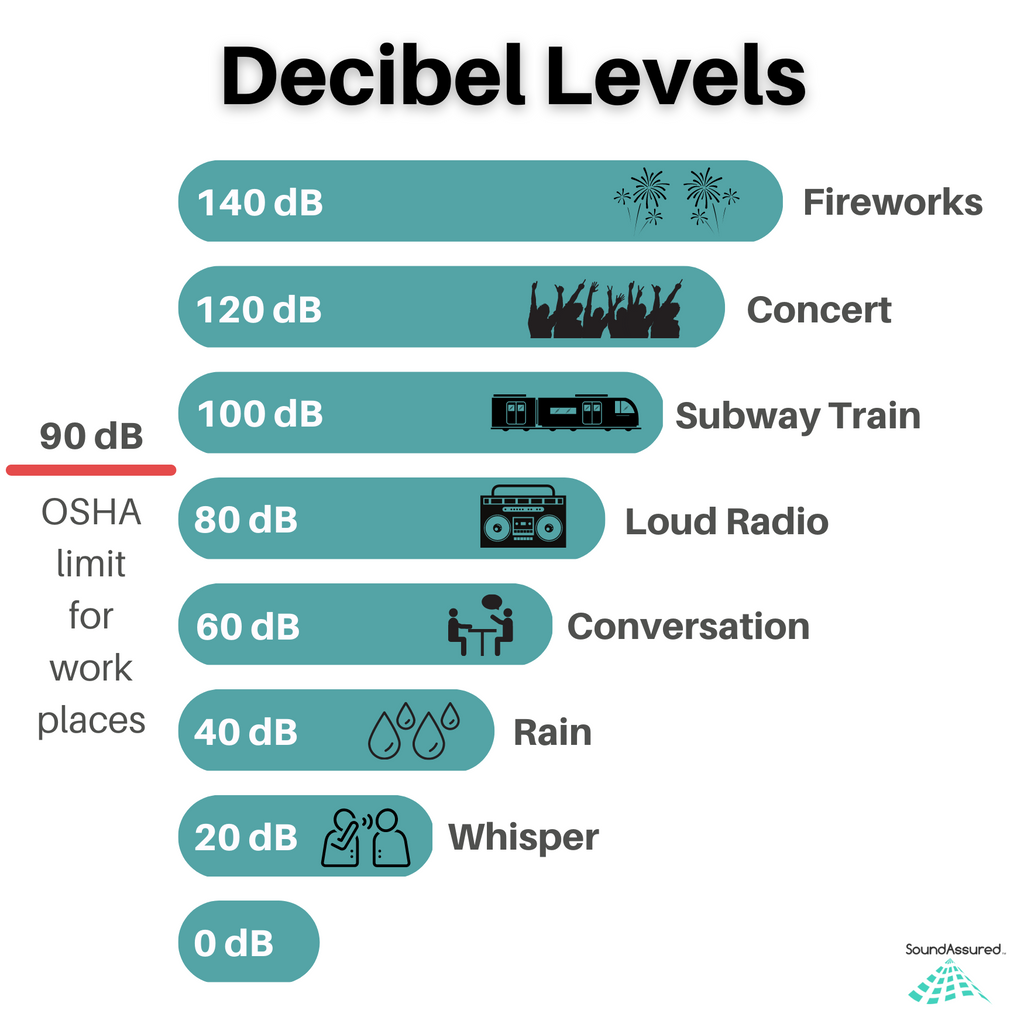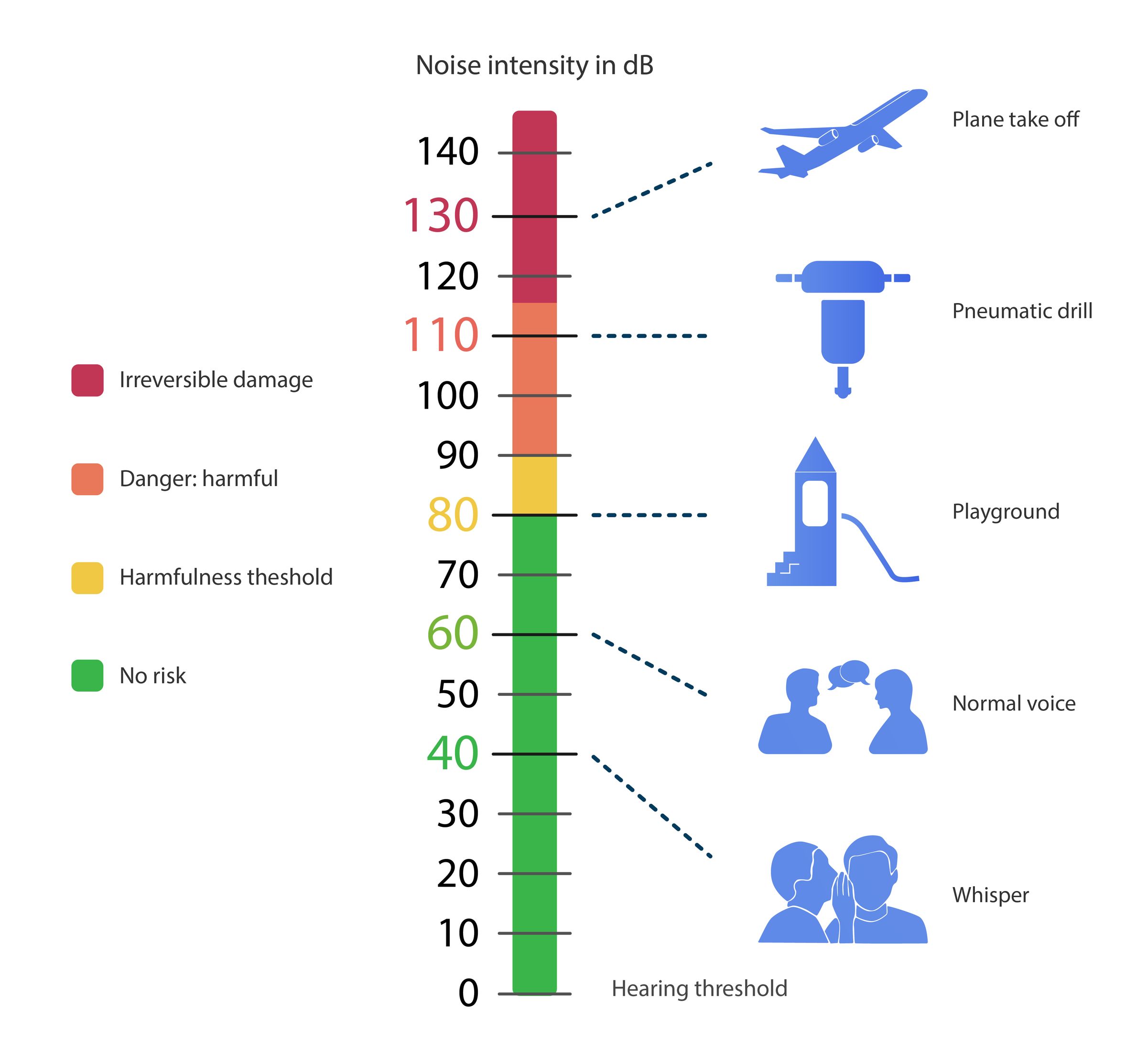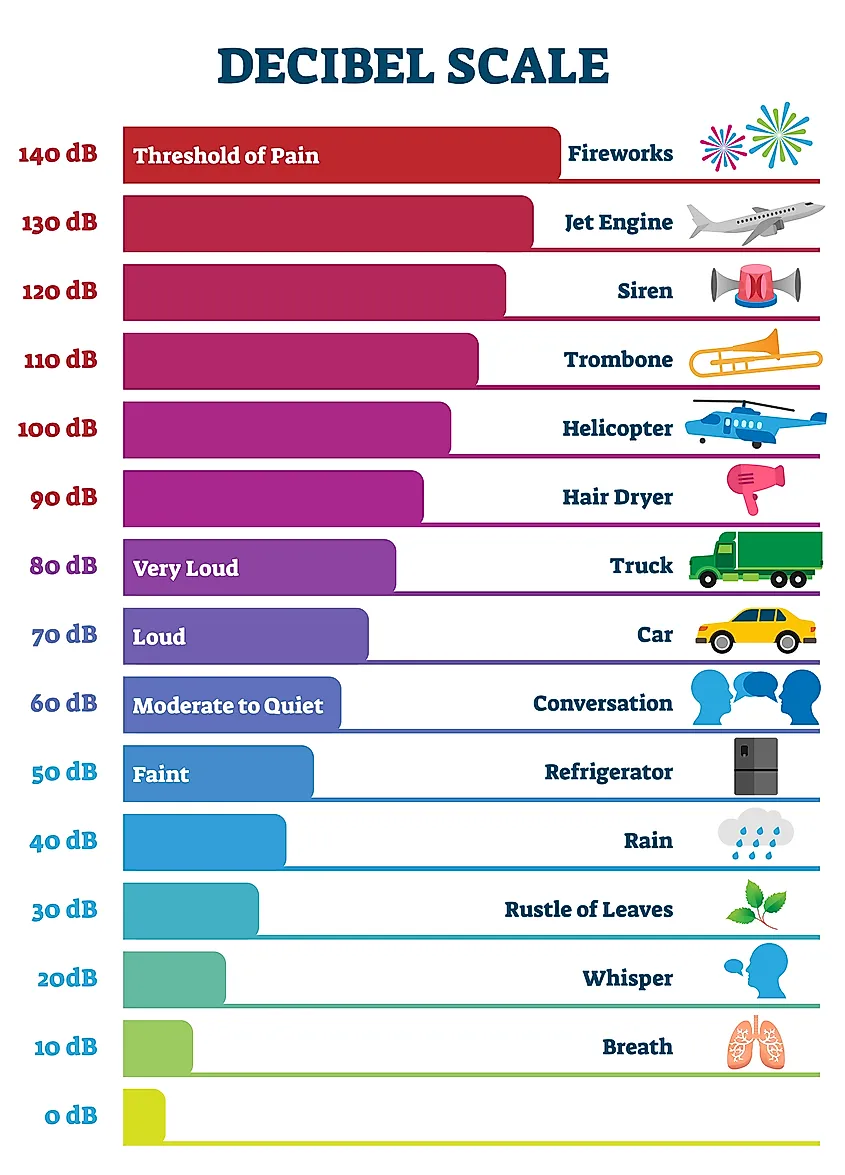Supreme Tips About Can A Human Survive 200 Decibels

Symptoms Of Ear Damage From Loud Noise London Centre
The Sound Barrier — And Then Some
1. What Even Is a Decibel Anyway?
Okay, let's talk about sound. We experience it every day, from the gentle hum of a refrigerator to the blare of a car horn. But what exactly is a decibel? Think of it as a way we measure the loudness of a sound. It's a logarithmic scale, which means that every increase of 10 decibels represents a tenfold increase in sound intensity. So, a 20-decibel sound isn't just twice as loud as a 10-decibel sound; it's ten times as intense! Sounds a bit mind-bending, right? Don't worry, the main point is that these numbers get big really fast.
A whisper might be around 30 decibels, a normal conversation hovers around 60, and a rock concert can crank up to 110-120. Anything above 85 decibels, sustained over time, can start to damage your hearing. Construction workers, musicians, and even some dentists (hello, dental drill!) need to be careful and wear hearing protection.
Now, let's put this in perspective before we jump straight into the terrifying realm of 200 decibels. Imagine standing next to a jackhammer — that's roughly 100 decibels. A jet engine taking off? Maybe around 140. That's painful, yes, but survivable (with ear protection, of course!). So, you may be asking yourself: what exactly happens when we crank the dial way, way up?
Its like comparing a gentle summer breeze to a category 5 hurricane. We're entering a world where sound becomes a force — a destructive force, at that. Its essential to remember that we're talking about exponential growth here. Every decibel counts, and 200? Well, buckle up, because that's where things get interesting and potentiallywell, let's just say messy.

Decibel Rating Chart Iwebvirt
200 Decibels
2. Theoretical Limits and Shockwaves
Before we explore the effects on the human body, its important to address a slight curveball. Reaching 200 decibels in a normal atmospheric environment on Earth is incredibly difficult, if not theoretically impossible, without causing some serious, uh, side effects. At such extreme sound levels, the sound wave becomes more like a shockwave, similar to what youd experience during an explosion. The air itself starts to behave differently, becoming compressed and heated.
Think about it: sound is essentially vibrations traveling through the air. At 200 decibels, those vibrations become so intense that they create immense pressure. This pressure can rip things apart — and we're not just talking about paper cups here. We're talking about structures, potentially evenwell, ourselves. The energy involved is staggering. It's the kind of energy you might find in a small explosive charge.
So, while we can theoretically imagine a 200-decibel sound, the practical reality is that it wouldn't exist as a "sound" for very long. It would quickly transition into something far more destructive. The air molecules would be vibrating so violently that they would likely ionize, creating plasma and extreme heat. This extreme heat, in turn, might create more noise, and the whole thing becomes a runaway effect of energetic disturbances.
Therefore, consider this thought experiment a trip into the hypothetical and the incredibly dangerous. The point isn't to suggest that 200-decibel sounds are just around the corner. Rather, it is to give you a glimpse into the sheer, raw power that sound can possess when amplified to the extreme. Now, imagine this happening near a human being.

Decibel Scale
The Human Body vs. The Wall of Sound
3. Ruptured Eardrums — And Much, Much Worse
Let's get down to brass tacks. What would actually happen to a human exposed to a 200-decibel sound? Well, the short answer is: nothing good. At "just" 150 decibels, your eardrums would rupture. They would be absolutely, irrevocably destroyed. But that's just the beginning. Think of it as the amuse-bouche before a truly horrifying main course.
At 180 decibels — a level that, again, edges into the realm of theoretical possibility, like very close to a massive explosion — your lungs could collapse. The pressure wave would literally crush them. The air sacs in your lungs, delicate and essential for breathing, would simply burst. Imagine trying to inflate a paper bag with a fire hose. That's the kind of force we're talking about.
But 200? At that level, the sound waves could cause internal organs to resonate violently. This resonance could lead to hemorrhaging, tissue damage, and potentially even organ rupture. Your heart might struggle to beat, and your brain, surrounded by cerebrospinal fluid, would be subjected to intense pressure changes. It's a recipe for catastrophic failure, and it's not pretty.
In essence, being exposed to 200 decibels is like being hit by an invisible, incredibly powerful hammer. It's not just about being "loud"; it's about the sheer force of the sound waves tearing apart your body from the inside out. The human body simply isn't designed to withstand that kind of assault. No amount of earplugs or noise-canceling headphones could save you. So, if you ever find yourself in a situation where you think you might be exposed to 200 decibels, run. Just run. Fast.

The Real-World Implications (and Thankfully, the Lack Thereof)
4. Where Do Such Loud Sounds Exist?
The good news is that you're unlikely to encounter anything even remotely close to 200 decibels in your everyday life. Even the loudest concerts, explosions, or industrial equipment rarely approach that level. Thank goodness. But, it's still worth pondering where such intense sound levels could theoretically exist (aside from extreme explosions). Perhaps near incredibly powerful experimental weapons, or in the heart of a supernova.
Understanding the theoretical limits of sound helps us appreciate the importance of hearing protection in more realistic scenarios. While you may not face the risk of organ rupture from a rogue sound wave, prolonged exposure to even moderately loud noises can lead to permanent hearing loss. The damage accumulates over time, and once it's gone, it's gone. So, protect your ears!
Thinking about the effects of 200 decibels also highlights the sheer power of energy. Sound, at its core, is energy in motion. And when that energy is concentrated and amplified, it can become incredibly destructive. This principle applies to everything from earthquakes to hurricanes to, yes, incredibly loud noises.
Ultimately, the question of whether a human can survive 200 decibels is a thought experiment designed to illustrate the destructive potential of extreme sound. It's a reminder to protect our hearing and to appreciate the forces of nature (and human technology) that can shape our world, for better or for worse. It is also a way of encouraging and showing how dangerous certain actions could lead to detrimental effects on your health, so the question is how we can prevent this.

At How Many Decibels Does A Human Speak Normally
In Conclusion
5. Just Be Kind to Your Ears!
So, can a human survive 200 decibels? The answer, unequivocally, is no. It would be a catastrophic event. But take heart! You're highly unlikely to ever encounter such a sound in real life. The point is not to induce anxiety about some imminent sonic apocalypse. The goal is to encourage caution and good sense regarding sound exposure in your daily life.
Think of it like this: you probably won't be struck by lightning, but you still know to take cover during a thunderstorm. Similarly, you probably won't be exposed to 200 decibels, but you should still protect your hearing at concerts, construction sites, or anywhere else where noise levels are high. A little bit of prevention goes a long way!
Take care of your ears. They are essential organs that allow you to experience the world around you. Don't take them for granted! Use earplugs when necessary, and be mindful of the volume levels you're exposed to. Your future self will thank you. Besides, do you really want to miss out on hearing your favorite music, the laughter of your friends, or the gentle sounds of nature?
Now, go forth and enjoy the (reasonably quiet) world! And remember, if you ever find yourself near a device claiming to generate 200 decibels, run very, very far away. Your ears (and the rest of your body) will thank you.

Noise Pollution The Knowledge Library
Frequently Asked Questions (FAQs)
6. Your Burning Questions Answered
Here are some common questions about sound, decibels, and the potential dangers of loud noises:
7. What's the Loudest Sound Ever Recorded?
The loudest sound ever reliably recorded was the eruption of the Krakatoa volcano in 1883. Estimates put the sound level at 180 decibels at a distance of 100 miles! It was heard thousands of miles away and caused significant damage. Think of it as a natural 180db experiment, without anyone asking to sign up.
8. How Can I Protect My Hearing?
The best ways to protect your hearing include wearing earplugs or earmuffs in noisy environments, limiting your exposure to loud sounds, and getting regular hearing checkups. Be mindful of the volume on your headphones and avoid listening at excessively high levels. Also, give your ears a break — quiet time is important for recovery.
9. Is There Any Way to Repair Damaged Hearing?
While some hearing loss can be treated with hearing aids or cochlear implants, much of the damage is irreversible. Prevention is always the best approach. If you suspect you have hearing loss, consult with an audiologist for a professional evaluation.